The biggest General Election in recent history will take place tomorrow as millions of Britons have their say on who should run the country going forward. With around 40 million motorists around the UK, motoring policy has become one of the key topics throughout the campaign trail.
Clean Air Zones, 20mph speed limits and fuel duty rates have dominated manifesto pledges from all political parties as drivers struggle to deal with the ongoing cost of motoring.
Vehicle Excise Duty rates, car insurance costs and fuel prices have all increased and drivers are looking to politicians to deal with the important issues.
To help Britons with the impossible task of choosing which political party to vote for, GB News has rounded up all motoring policies set out in various manifestos, speeches and other pledges set to impact drivers.
Do you have a story you’d like to share? Get in touch by emailingmotoring@gbnews.uk
The Conservatives have painted themselves as the party for drivers
PA
Conservative
One of the key pledges for the Conservatives in its manifesto is to back drivers by stopping road pricing. This is directly targeting London’s Labour Mayor Sadiq Khan, who has been accused of wanting to introduce a pay-per-mile scheme, with the Conservatives also wanting to scrap the highly controversial Ultra Low Emission Zone expansion.
The Tories will launch local referendums to new 20mph speed limit zones and Low Traffic Neighbourhoods. These have frequently been seen as bugbears for the Conservatives since Rishi Sunak ordered a review into LTNs in July last year. The traffic calming measures have attracted criticism in recent years for holding up traffic and attempting to curb the use of vehicles, prompting the Government intervention.
Petrol and diesel drivers will be supported by the manifesto promise to deliver the PumpWatch scheme. This will force major retailers and supermarkets to share live data about their fuel prices and how much they are charging.
Many have called for such a scheme to be introduced for years to promote competition among retailers and give Britons a fair deal at the pumps, as can already be seen in Northern Ireland with the Consumer Council Fuel Price Checker.
The Conservative manifesto reiterates many points already outlined in its Plan for Drivers and announcements during Rishi Sunak’s recent premiership. This includes potentially allowing motorcyclists to use bus lanes, introducing penalties for overrunning roadworks and having a more consistent approach to road traffic offences.
Parking is under the spotlight for the Tories as well. The National Parking Platform will be rolled out later this year to simplify payment methods following feedback from older and disabled people, with councils being given the power to ban pavement parking, provided they engage with businesses “to ensure they are not adversely affected”.
Other more minor points include the pledge to build no new smart motorways, boost investment on existing ones and use the £8.3billion of funding from the cancellation of the second phase of HS2 to fill the scourge of potholes and resurface roads.
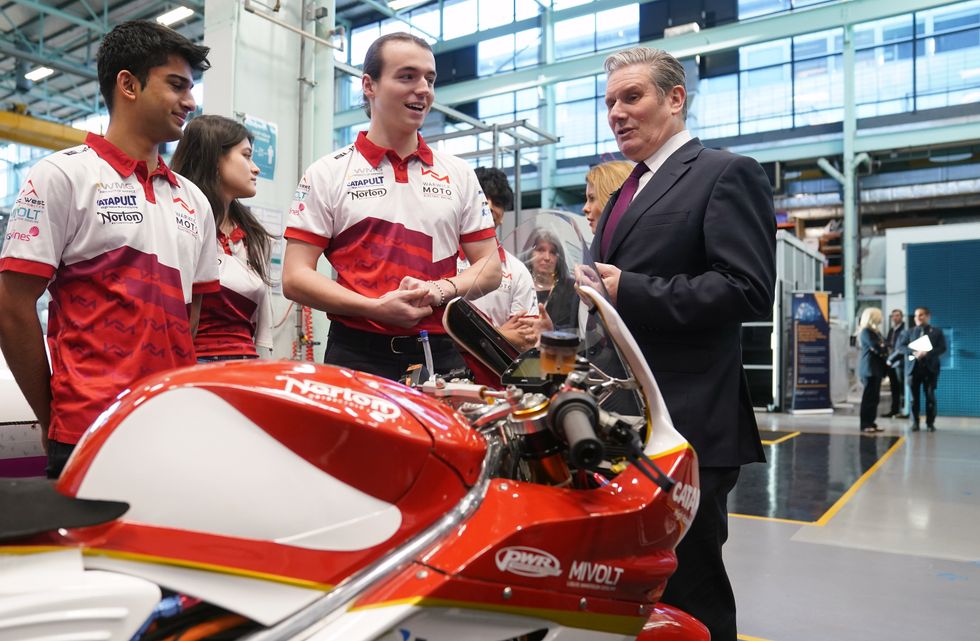
Keir Starmer’s party have led the polls since the election was called
PA
Labour
Keir Starmer’s Labour has also attempted to position itself as the pro-driver party by drip-feeding policies designed to attract support from motorists and directly tackle the Conservative’s advantage with the Plan for Drivers.
Following the party’s “Change” slogan, Labour will look to maintain and renew roads and fill in an additional one million potholes every year, with Shadow Transport Secretary Louise Haigh pointing out that there are now 100 times more potholes on UK roads than craters on the moon. Funding for potholes will come from the deferred A27 bypass, with the £320million cash injection being allocated to local road repairs across the country.
Labour will look to address the soaring cost of car insurance by calling in the Competition and Markets Authority and the Financial Conduct Authority to investigate the high costs to see whether an unfair postcode lottery scheme is in place. Figures from the party estimate that one million people cancelled their car insurance as a result of the cost of living crisis in 2022.
Electric cars will get a boost under a Labour Government with new targets expected to be set out to accelerate the growth of new EV charging stations. Currently, there are 63,500 chargers around the UK, with hopes that 300,000 will be installed by the end of the decade. Barriers could be removed to secure grid connections and remove planning red tape holding up the delivery of new charging stations.
This would coincide with another bold plan to reinstate the original 2030 deadline to ban the sale of new petrol and diesel vehicles. Prime Minister Rishi Sunak originally changed the deadline to ban internal combustion engine vehicles last September in a bid to give people more time to adapt to falling electric vehicle costs, despite constination from the wider industry.
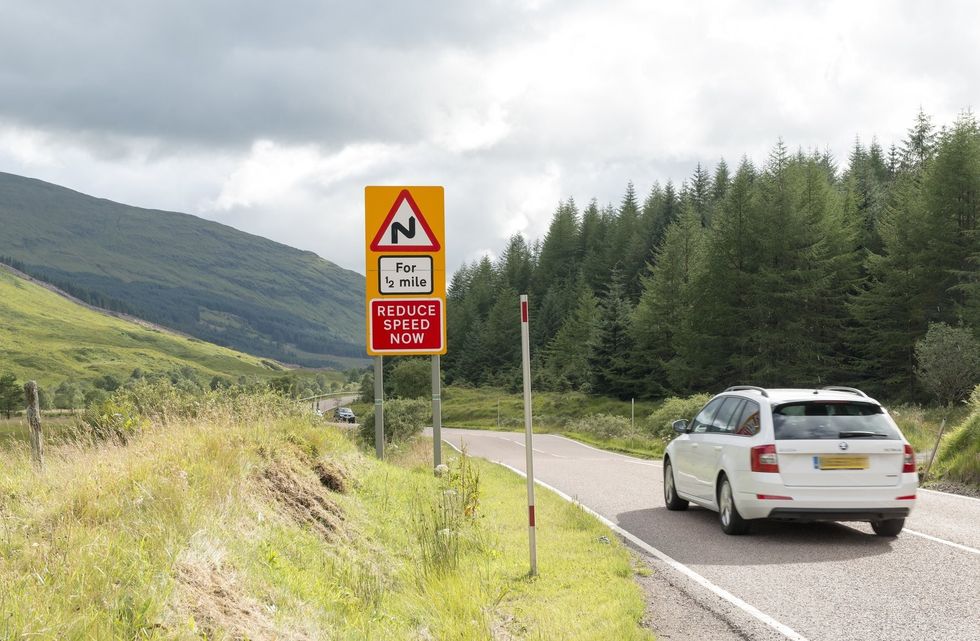
Rural drivers would be backed by the Liberal Democrats
TWITTER/DVSA
Liberal Democrats
Sir Ed Davey has been embarking on one of the most fun-packed election trails in history, supported by bungee jumping, zumba and even skydiving, wtih the Lib Dems being the first major party to outlined their political pledges to the public early in June, with the yellow party aiming to give Britons “a fair deal”.
The Lib Dems will also reinstate the 2030 deadline to ensure any new cars and vans being sold are zero emissions, with drivers being bolstered by a rapid rollout of electric vehicle charging points and the reintroduction of the Plug-in Car Grant.
This was originally scrapped by the Conservatives in 2022 and has been suspected by some as being one of the main causes behind the declining interest in electric vehicles from the majority of British consumers in recent years. It allowed motorists to save a few thousand pounds on their total cost of a new electric vehicle and helped contribute to the sale of almost 500,000 zero emission vehicles.
Electric vehicles will be bolstered by bringing the rate of VAT on public chargers in line with home charging to five per cent. This, alongside the pledge to require all chargers to have contactless payments, is designed to support the uptake of electric vehicles.
Despite the EV measures, the Liberal Democrats have pledged to protect rural drivers being “clobbered by the cost of living” by expanding Rural Fuel Duty Relief. This will see the relief scheme extended to another 20 areas, which will save drivers five pence per litre at the pump in regions like Devon, Cornwall, East Anglia and Yorkshire.
Sir Ed Davey said his party are “standing up for rural communities after years of Conservative chaos and neglect”. He clarified that the PumpWatch scheme would be supported by the Liberal Democrats if they are elected, again targeting the Conservatives for failing to deliver on their promise before the end of the Parliament.
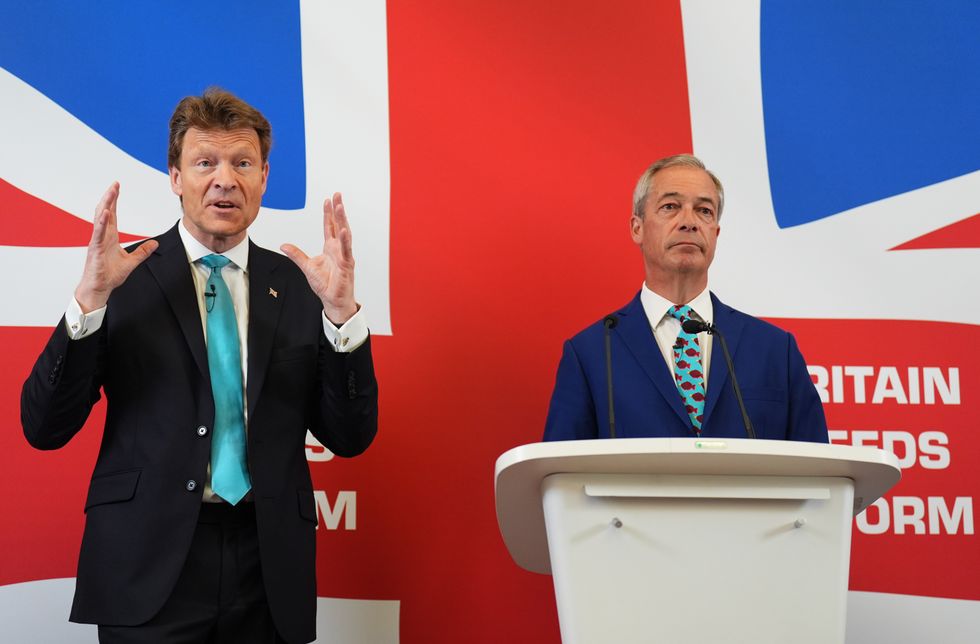
Richard Tice and Nigel Farage are looking to build on the number of Reform MPs
PA
Reform UK
Nigel Farage’s party has made major strides in recent polls, even placing ahead of the Conservative party at times. The firebrand, who replaced Richard Tice as party leader last month, has quickly become the most controversial political hopeful ahead of tomorrow’s General Election.
In the party’s contract, Reform UK said it would stop the war on drivers. This would be done through several pledges all designed to save motorists’ money, as well as meet the party’s aim of scrapping net zero.
Reform would legislate to ban all “Ulez Clean Air Zones” and low traffic neighbourhoods. There are already a handful of emissions-based charging systems seen around the UK, with more planned, with the party aiming to shut the door on charging motorists unfairly.
As part of its plan to scrap net zero, Reform will completely outlaw the ban on the sale of new petrol and diesel vehicles, as well as removing the requirement for manufacturers to sell electric cars.
The Government’s Zero Emission Vehicle mandate would be outlawed less than a year after it was first introduced. It sees manufacturers required to meet minimum sales targets every year until 2035, starting with 22 per cent at the end of this year, 80 per cent by the end of the decade and 100 per cent by 2035.
Under a Reform Government, drivers would see all 20mph speed limit roads scrapped unless when there are scenarios where safety is critical. There has been support for the removal of the slower speed limits on residential and rural roads, although most agree that they are needed on streets near schools and hospitals.
Finally, fuel duty will be slashed by 20p per litre for residential and business users, blowing the current 5p reduction out of the water. Data shows that people have struggled to see the 5p cut at the pumps with major retailers and supermarkets continuing to profit from higher margins, leaving motorists further out of pocket.
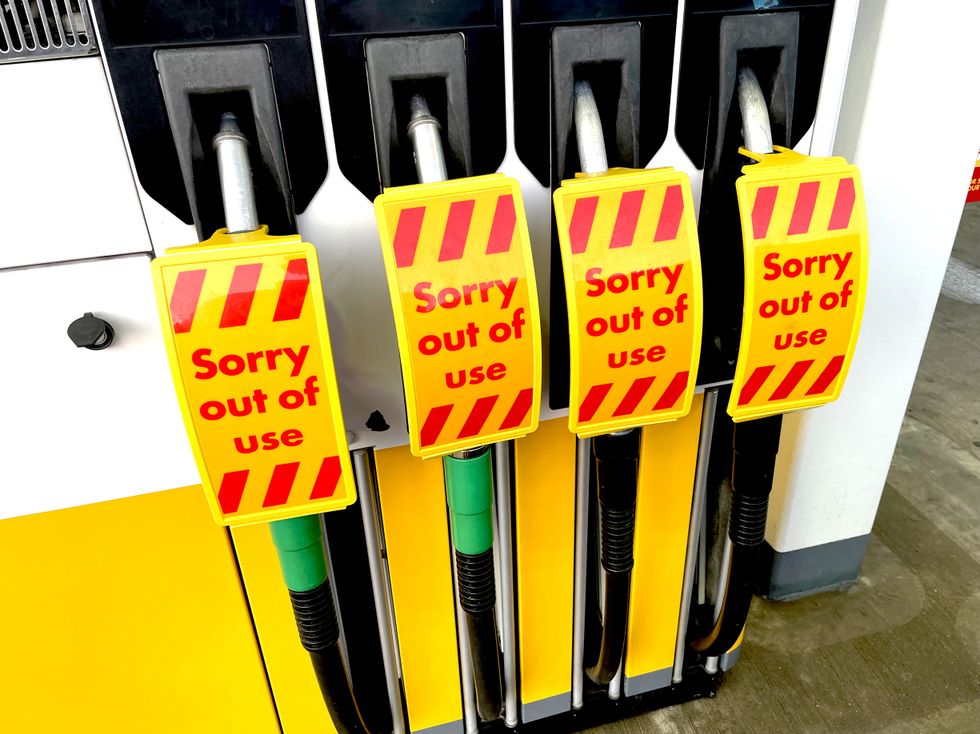
The Green Party have called for petrol and diesel vehicles to be banned from roads by 2035
GETTY
Green Party
The party, which is fronted by co-leaders Carla Denyer and Adrian Ramsay, aims to give Britons “real hope” and “real change” with lofty environmental goals to meet net zero ambitions set for 2050.
Major changes would be rolled out under a Green Party Government, namely an end to sales of new internal combustion engine vehicles by 2027 and to the use of petrol and diesel vehicles on the road by 2035. This would be supported by an extensive vehicle scrappage scheme to boost the transition to electric vehicles.
The manifesto suggests that funding would rise to £5billion per year by the end of the Parliament, as well as being supported with a rapid rollout of electric vehicle charging stations, with “more Government support” for ordinary car users to replace ICE vehicles.
However, electric vehicle and SUV owners could be hit by the Green Party’s target to make road tax proportional to vehicle weight, with these larger vehicles likely to face the highest costs as sales of smaller city cars continue to fall.
In stark contrast to other political parties, the Greens will make 20mph the default speed limit on roads in all built-up areas. They say this will allow children, the elderly and disabled people to walk and wheel safely.
The Greens outlined that it would also push for the removal of business rate relief on petrol stations, most empty properties and Enterprise Zones.
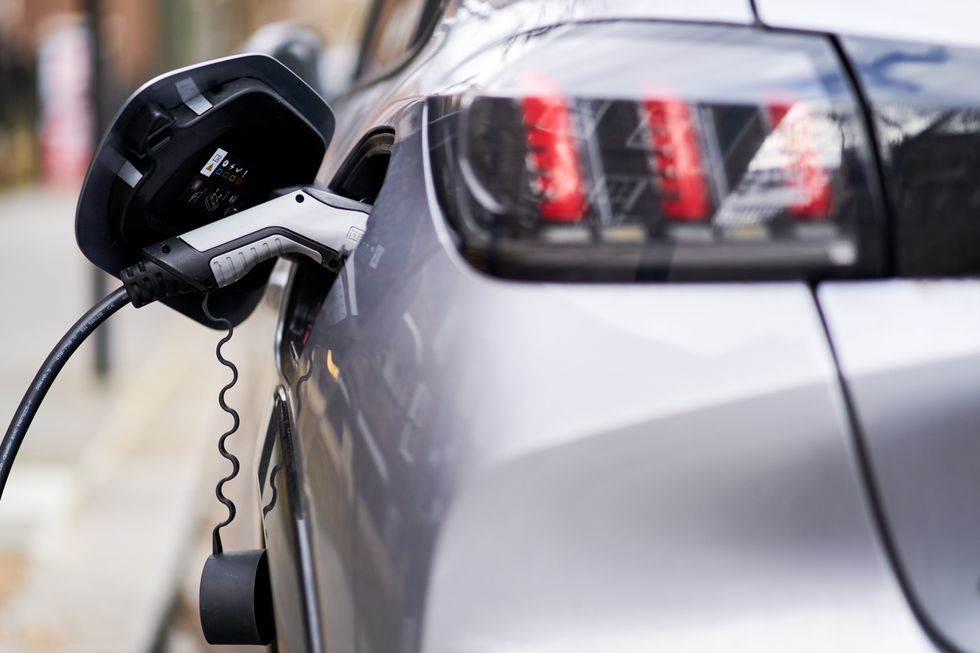
The SNP has called for a France-style Low Income EV Leasing scheme
PA
SNP
Despite a tumultuous few years for the Scottish National Party, John Swinney and Stephen Flynn have attempted to restore order with a strong manifesto for Scottish drivers to have faith in the party once again.
The manifesto calls for the promotion of a fair and affordable transition to zero emission transport fuels, as well as the ban on imports and sales of new, non-zero emission buses by 2025.
The SNP has suggested following the lead of France when it comes to drivers buying new electric vehicles. It calls on the UK Government to establish a new Low Income EV Car Leasing Fund, backed up by at least £500m, to enable 50,000 EV leases a year to benefit low-income families.
Safer roads is a key topic for the SNP with the party aiming to reduce road traffic to cut emissions and ensure streets are safe, reliable and resilient. The UK Government will also be pressed to fulfil their commitment to fund improvements to the A75.
LATEST DEVELOPMENTS:
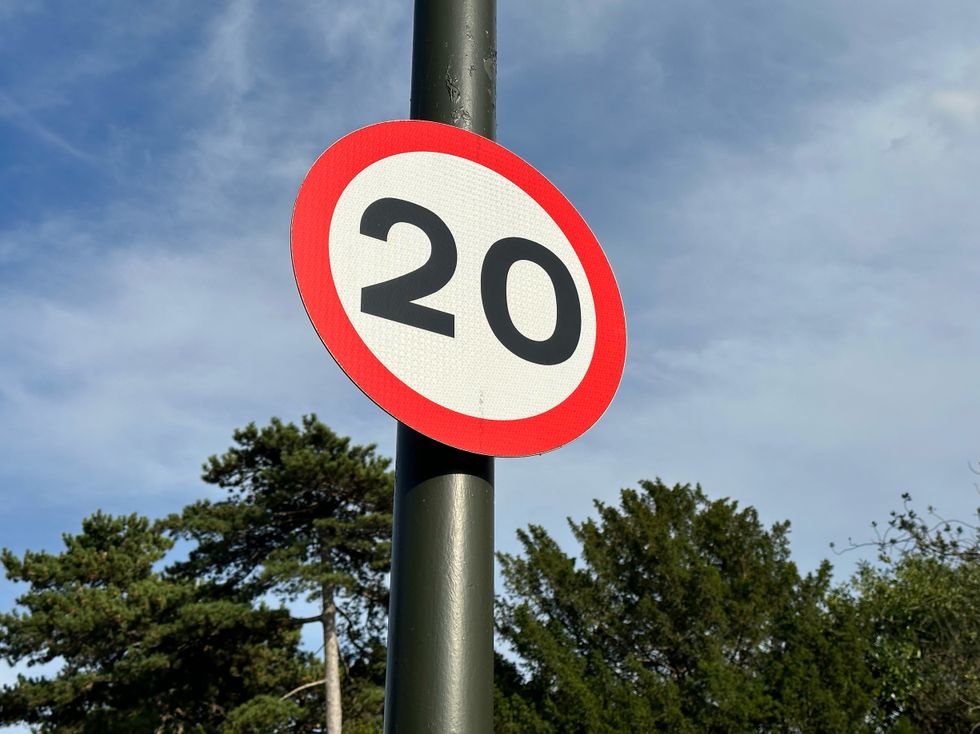
Plaid Cymru remain in support of 20mph speed limit rules
Getty
Plaid Cymru
Rhun ap Iorwerth, leader of Plaid Cymru, has come out swinging in recent weeks, blasting the UK Government for not caring about Wales, as well as calling for compensation worth £4billion after the scrapping of HS2.
Plaid Cymru said it supports the introduction of 20mph speed limits across Wales “in principle” but that the Labour Welsh Government implemented it “poorly”. The manifesto adds that it supports a review to ensure they work successfully in reducing dangerous driving in urban areas. This would be supported by investment into average speed cameras.F
The party added that it supports Clean Air Zones near major centres of population and traffic calming measures to increase road safety. At present, no cities in Wales have a Government-mandated Clean Air Zone.
It supports investment in active travel routes to persuade people to use their cars less and ensure that changes to road policy happen at the same time as increased investment in public transport systems.
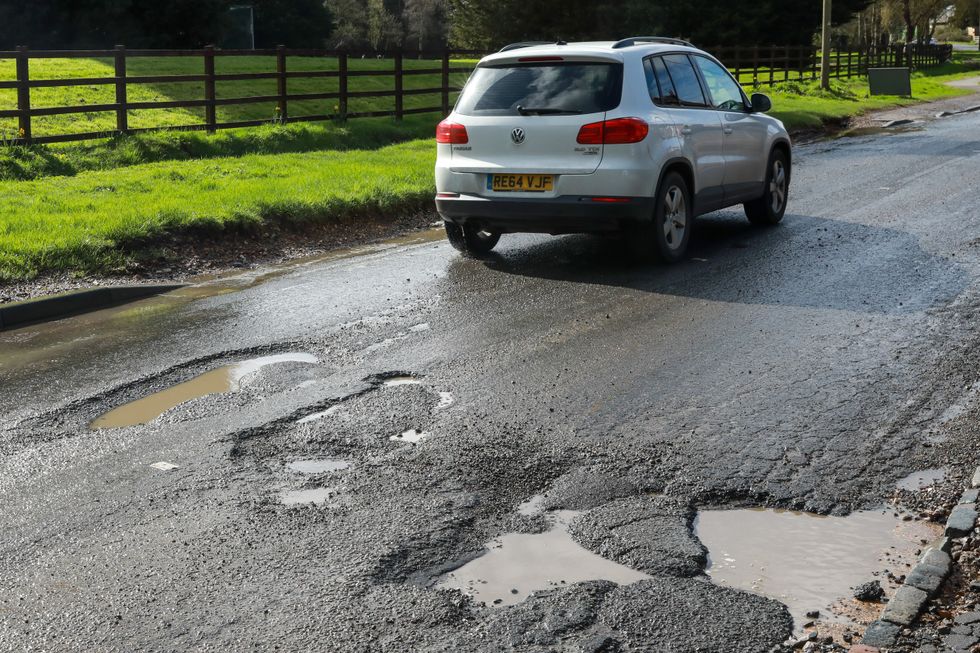
Potholes have become an important talking point for political groups during the election campaign
GETTY
Around 42 million Britons hold a driving licence, making up one of the largest groups in society, and thus one of the largest voices in politics. Some political parties have scrambled to get a slice of the motoring pie for the sake of a few votes, while others have had firm plans for some years.
The July 4 General Election has been heralded as one of the most important in the last 100 years, and for good reason. There has rarely been this much at stake for all Britons, let alone drivers.
Drivers will now be in the know about what will impact their lives behind the wheel over the next five years.

